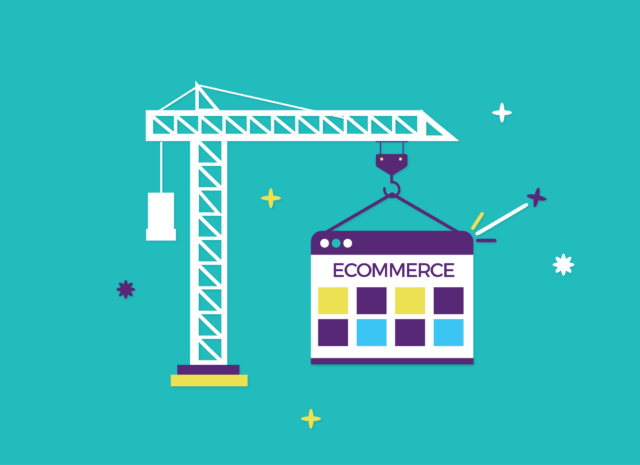
You want to create an eCommerce website, but you have no technical knowledge about coding and site-building. Well, you’re in luck because there are website builders that help you create your site with ease.
They usually provide templates and features that allow you to create a great site, similar to those who make theirs from scratch. Depending on the option you choose, you might need hosting, which you can find here. Alternately, some website builders include hosting. This should also be a factor when choosing the right option.
Once you decide if you want a self-hosted or a hosted option, we can get into the rest of the tips:
1. Ease of Use

A website builder should be easy to use for beginners or non-tech-savvy users. Even though eCommerce website builders don’t require coding, different builders might have different levels of ease of use.
So when looking for the right builder, you should look for one with a drag-and-drop function and an intuitive editor to make it easier to customize the elements on your website. They should also provide a wide range of designer-made templates to give you more choices and customization options.
2. Features
Of course, every eCommerce website will have different needs. Still, a great website builder should have features like a blogging system, mobile-friendly designs, an array of high-quality royalty-free images, a great shopping cart, and the ability to include third-party marketing tools.
It should also include customizable SEO options. A good website builder should have SEO features to allow easier on-site optimization. You should be able to update your meta elements easily and get a sitemap to the search engines.
3. Pricing

You should first set a budget of much you are willing to spend on an eCommerce website builder. To ensure that you don’t go over budget because of hidden fees, check the pricing plan descriptions and user reviews regarding pricing.
Lucky for us, since there are many choices, we can look for the one that brings the best value for money. A good site builder should provide at least a free domain name, free SSL certificate, and free eCommerce features. It will be a great addition if they provide free SEO tools too.
4. Customer Support
This is a pivotal factor to consider when choosing a website builder. You should be able to get in touch with the support staff swiftly should you encounter any issues when building your site and after you’ve established it.
Ensure that there is 24/7 support available because having someone to call and fix your problems at any time is a huge factor. You could lose a lot of traffic and sales with just a few minutes of downtime.
An easy way to see whether the website builder’s customer support is excellent or not is by looking at the user’s review. Compare them and see which has the best reviews.
5. Resources

When you choose a website builder, you’ll need to learn how to use it first before starting, especially if the builder is packed with different features.
Before you pick a website builder, see whether they have the resources to help you learn how they work. Ideally, the builder should provide tutorials on creating a website and how-to guides for the different features. It can be either through video or text formats.
6. Free Trial
It’s a great advantage if website builders offer a free trial. This is so you can test out how the builder works and what kind of features it brings. This also reduces your need to learn about them because you get free time to explore around the builder. The free trial duration varies, but you usually don’t need more than two days to go through everything in there.
Should a website builder have no free trial, check whether they provide an open plan or money-back guarantee policy. With the policy, you’ll at least have a guarantee that if you’re not satisfied with the website builder and the services, you can request a refund.
7. Marketing & Analytics

As you begin your online store, you’ll need to do some marketing for your website to gain traffic and ultimately sales too. Website builders should be able to help you with marketing. This could be through optimizing your site and content for SEO, allowing the integration of third-party marketing tools like Google Ads, and easily share your content through social media.
Your website builder should be able to give you access to your website’s analytics, at least to view how well your site is performing in terms of traffic, bounce rate, and conversion rates. They should also include third-party analytic tools like Google Analytics to help.
An example of what Google Analytics will show regarding your online store.
8. Simple Checkout Process
Over 55% of users leave your website at the cart. This is due to the checkout process being too complicated and lengthy. When choosing a website builder, see whether they provide a simple checkout process or whether you can also customize it.
An excellent checkout page should include an order summary where you only ask for the necessary information to users to make payment. See if the builder has plenty of payment methods included too for quicker checkout.
9. Security

As mentioned in section three, a good site builder should have an SSL certificate included for security in your site, including when users are making payments online where they need to share sensitive information.
Ensure that your website builder is PCI compliant, meaning they follow specific requirements that are needed to ensure that the process, storing, and transmitting of the credit card information is done in a secure environment.
10. Scalability
When choosing a platform for your website, you should look for flexibility and customization, even after launching your online store. Your business will expand, so you’ll need a scalable and flexible platform to comply with your increasing requirements.
Also, take a look at the website builder’s hosting plan, should they provide one, which they usually do. I would suggest using a hosting plan that allows for easy scalability, for example, VPS hosting or cloud hosting.
Conclusion

Now that you know the ten tips to choose an eCommerce website builder, all that’s left for you now is to start looking for the right one for you. Remember to compare one to the other before deciding which to pick and look at their pricing plans. Usually, some will have discounts and promos.












